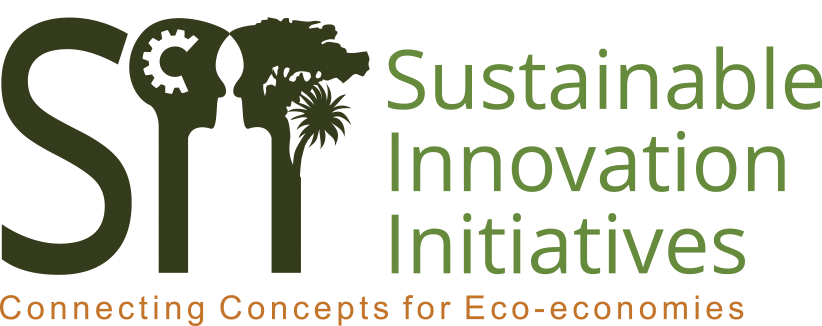Theory of Change
At Sustainable Innovation Initiatives (SII), our Theory of Change is the cornerstone of our efforts to foster ecological regeneration and sustainable development. This strategic framework helps guide our actions and evaluate our impacts, ensuring that every step we take is aligned with our mission and vision. Our Theory of Change is composed of seven core strategies.
1. Community Engagement and Capacity Building
Our approach begins with community engagement and capacity building, which are fundamental to informed action. By working closely with local communities, we enhance the likelihood that integrated efforts can enable adaptation through cultural and social empowerment. This empowerment ensures that our efforts are sustained and scaled effectively over time, fostering a deep-rooted sense of ownership and responsibility.
2. Collaborative Partnerships and Coalition Building
Building collaborative partnerships and coalitions is another cornerstone of our strategy. We establish strong alliances with NGOs, academic institutions, businesses, and international organizations to leverage diverse strengths and resources. This collaborative approach fosters innovation and maximizes impact, allowing us to address complex environmental challenges more effectively.
3. Scientific Research and Innovation
Scientific research and innovation underpin all our actions. Conducting rigorous research ensures that our strategies are grounded in solid scientific foundations and allows us to develop innovative solutions to environmental challenges. This commitment to science ensures that we continuously improve our practices and adapt to new information and contexts.
4. Education and Awareness
Education and awareness are critical for fostering a culture of environmental stewardship. We develop and disseminate educational materials and conduct outreach programs to increase public understanding of sustainability and conservation. This broad awareness and support are vital for inspiring action at all levels of society.
5. Promoting Behavior Change
Individual and collective behavior change is essential for achieving lasting environmental impact. Through targeted campaigns and educational efforts, we encourage sustainable behaviors and reduce harmful practices. By shifting public attitudes and practices, we lay the groundwork for long-term positive change and build a resilient future.
6. Policy Advocacy and Governance
Policy advocacy and governance are crucial for enabling environments supporting positive change. We engage with policymakers to advocate for sustainable policies and effective governance structures. This is essential for ensuring that our initiatives are supported by robust legislative frameworks and enforcement mechanisms, driving systemic change that supports long-term ecological health.
7. Organizational Development and Transparency
Organizational development and transparency are core to our operational philosophy. We are committed to developing efficient, high-impact models that we can share with other civil society organizations. By emphasizing transparency, continuous improvement, and the use of best available evidence for monitoring and evaluation, we ensure that our operations are as informed and effective as possible. This strategy allows us to adapt and evolve, share our model with others, and catalyze similar efforts globally.
We integrate these core strategies into all of our initiatives, ensuring that our efforts are comprehensive, impactful, and sustainable. By applying these strategies holistically, we achieve meaningful progress toward our mission of fostering ecological regeneration and sustainable development, creating lasting benefits for the communities we serve and the environment.
